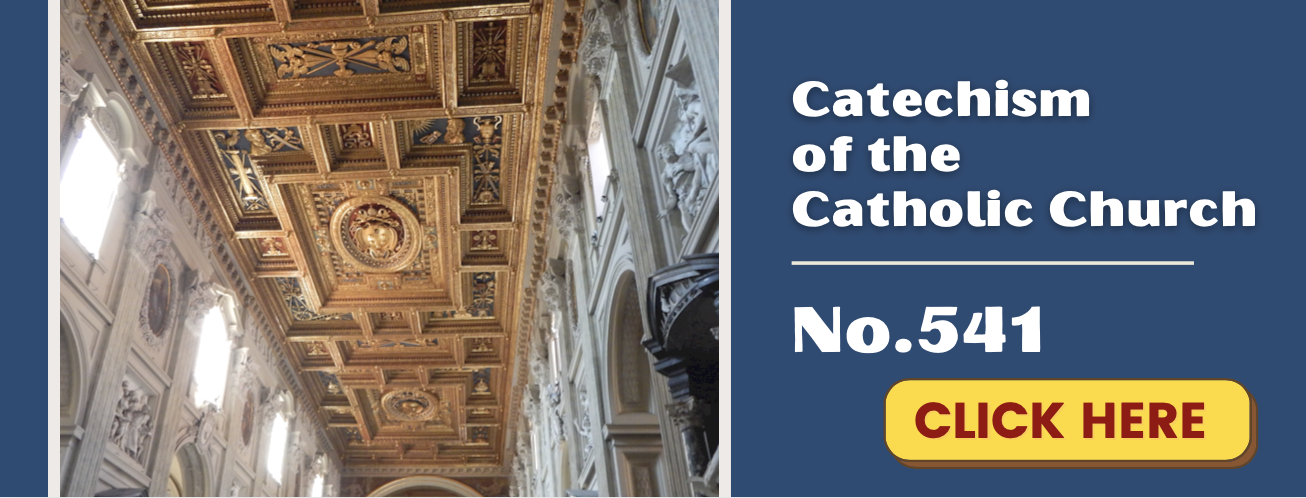Friday of the Thirty-fourth Week in Ordinary Time



“For greater things you were born.” (Ven. Mother Luisita)
FRIDAY, November 26th Lk. 21:29-33 Jesus says: “Heaven and earth will pass away, but my words will not pass away.”
Neither Christ nor His words will pass away! Christ is the Head of His Church and we are the Body of Christ. May our greatest desire be to live fully the life of Christ’s Church on earth by participating fully, actively, and fervently in the life and Sacraments of the Church.
The Church year ended with the Solemnity of Christ the King. The Liturgical cycles begin again with the Season of Advent. Fr. Ed helps us prepare to enter this time marked by prayer and great anticipation!
ADVENT IS A TIME FOR GREATER SILENCE AND PRAYER by Fr. Ed Broom, OMV
Advent is a season of very special graces! It is time of waiting, hope and joy. Waiting—for the birth of Our Lord and Savior Jesus Christ; Hope—because Jesus came to save us; and finally Joy—because Jesus’ birth, life and Resurrection is a promise of eternal life for those who obey His commandments and love Him.
SILENT NIGHT
On Christmas Eve it is most appropriate to sing the hymn Silent Night. In the profound depths of that most special night Jesus was born in silence. How important silence is for those who truly are seeking the presence of God. The prophet Elijah sought God in his mountain experience. This mysterious God was not found in the earthquake, nor in the peals of thunder, nor in the flashes of lightning. Rather the Almighty God could be found in the gentle whispering of the wind, in the gentle breeze.
In the midst of a world so absorbed in noise—you might even call it “noise pollution”—there is an urgent need for silence. Indeed, there are many positive fruits that flow from silence. We will mention just a few so as to encourage us to seek out times in our day for silence.
1. CLARITY OF THOUGHT
For us to have great clarity in our thought process we have an absolute need for silence. Bombarded by a constant onslaught of noise as we are, silence renders a clear, transparent, and honest thought life to blossom and bring forth fruit. The sublime theological writings of Saint Thomas Aquinas were written in silence. The literary expertise of the writings of Shakespeare were born of silence. The penetrating depth and insight of the theory of relativity discovered by Albert Einstein took place in the aura of silence. The greatest mystics, contemplatives and saints encountered God in silence. So may all of us relish moments of silence in our daily lives!
2. DETECTING TEMPTATION
In our lives we are constantly being bombarded by negative thoughts and the source of these is the enemy that we call the devil. Saint Ignatius calls him “the enemy of our salvation”; Saint Thomas Aquinas calls him the “Tempter”; Saint Peter compares him to an angry lion on the loose seeking to devour us. If we do not have moments of silence, zones of silence, then it will prove almost impossible for us to be able to discern and detect the ugly tail of the devil who is always seeking ways to tempt us, manipulate us, and coax us to fall into sin. Silent reflection gives us a more acute awareness of the strategies and manipulations of the enemy of our salvation.
In the desert Jesus was in silence as He prayed and fasted. The devil attacked Jesus but He rebuffed the enemy relying on the power and efficaciousness of the Word of God. “Man does not live on bread alone but on every word that comes forth from the mouth of God.” (Mt 4:4) Much of spiritual warfare must be engaged in through silence and prayer.
3. HEAVENLY INSPIRATIONS
Not only can we pick up the tactics of the enemy in the depths of a silent and discerning heart, but even more important we can pick up the Heavenly vibes—meaning, the inspirations that come from the Holy Spirit. As a matter of fact, God is always present; His whole being penetrates and permeates the entire universe. God is really never absent from us, but we can so easily become absent from Him. A dogmatic atheist who categorically denies God’s existence, cannot alter or modify to the slightest degree the reality of God’s existence. Saint Paul quoted the Greek poet with reference to God’s omnipresence: “In Him we live and move and have our being.” (Acts 17:28)
This being said, the Holy Spirit desires to speak to our heart but He respects our liberty to the max! If we are too busy and overly engrossed in noise, frenetic activities, non-stop movement and constant clatter then there is no room for the Holy Spirit to speak to our hearts through His heavenly inspirations. Never forget: The Birthday of the Church—Pentecost was preceded by fervent prayer, fasting, the presence of Our Lady (Mystical Spouse of the Holy Spirit), and silence. Therefore, with silence and a recollected heart we can pick up those Heavenly vibes and be transformed by God Himself—the Holy Spirit!
4. DISCERNING THE WILL OF GOD
Discovering the will of God in our lives and striving to implement it is indeed the key to holiness as well as peace of mind, heart, and soul. If we are running a mile a minute, if we are moving like a chicken with its head cut off, if we are in a constant state of agitation, if we have fallen into a perpetual state of activism putting our actions above God Himself, then it will be very difficult if not impossible to discern God’s will in our lives. Discernment of one’s vocation or one’s state of life is possibly the most important decision in one’s entire life. Marriage or the single life, priesthood or the religious life—the choice one makes in this vocational arena is of paramount importance. A wrong choice due to excessive noise, little or no reflection, bad advice from worldly friends can prove to be nothing less than a disaster.
For this reason, Saint Ignatius of Loyola, who has bequeathed to the world the Spiritual Exercises, offers a series of reflections, meditations, so as to help the retreatant discern what is his/her state of life. This Ignatian process of discernment done in SILENCE and reflection with a well-trained spiritual director can prove to be invaluable in choosing one’s vocation, giving honor and glory to God, and pursuing one’s own personal conversion and sanctification. This cannot be done without silence!
5. THE EXAMPLE OF ST. JOSEPH
Great Saint Joseph is the earthly father of Jesus who is the Eternal Son of the Father; Saint Joseph is also the husband of Mary, the Queen of angels and saints. Theology gives to Saint Joseph the cult of protodulia—first in veneration among the saints. A very interesting note about the great Saint Joseph is his profound silence. We have no recorded word of Saint Joseph in all of Sacred Scripture. The silence of Saint Joseph speaks eloquently. He was silent, as an example to us, so that we would learn in silence to listen to the Word of God and put it into practice.
In sum, may we all appreciate and value SILENCE. If done with an attitude of prayer, God will speak most eloquently in the depths of our hearts.